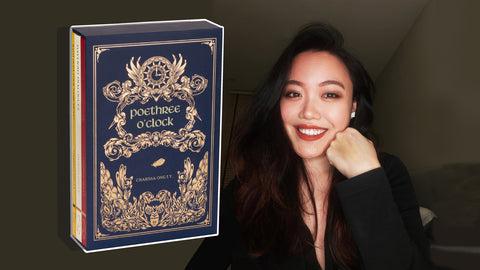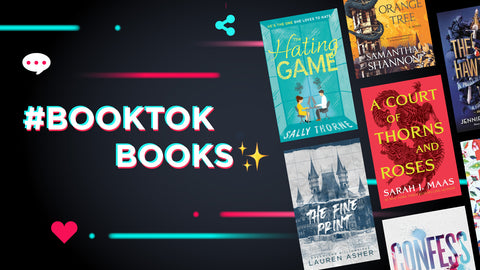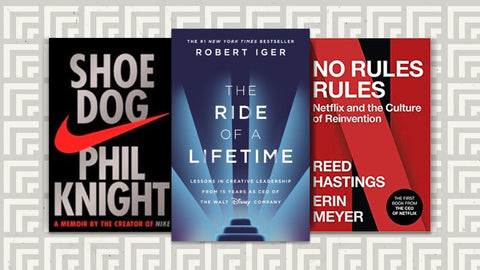With such a busy schedule, how do you juggle your roles as a founder of Penwings Publishing and a full-time job as a digital head of design?
I have a team that helps me. We normally organise everything on notion. I usually commit to Penwings after my working hours or during the weekends as from 9 a.m. to 5 p.m., I am with my full-time job. So, I do get these questions all the time: how do you still have work-life balance with these two roles? I manage to juggle both roles and still have work-life balance through trial and error. What I usually do is, when I attempt to do something, I try to do it immediately or quickly so that I don’t end up making a mess in the future. This is probably the easiest way for me to explain it. Just do things quickly and efficiently.
What do you think is the new trend in book publishing today? Is it digital? Physical print? Or a hybrid of both?
You’ve seen the opening of Tsutaya Bookstore (in Pavilion Bukit Jalil), right? You can also see that people still venture into bookstores quite insanely, especially me. I prefer physical books but that’s just my personal preference. The thing is, people have different ways of reading, and reading these days is now available in different mediums like e-books, audiobooks, or physical prints. It goes beyond all types of reading these days. For Penwings itself, we try to adapt and distribute our books into different mediums. I think, publishing houses are advised to adapt into distributing books more in different mediums as it is a way to open new doors in international distribution. Anyhow, regardless of the medium, reading is still a habit no matter where you are. That, to me, is my goal and vision as a publisher and an author, to cultivate the reading culture.
How did your publishing story begin?
When I was 24 years old, in college, I had a lot of emotions going on, so I went into poetry writing to vent it out. I started putting poetry up on Instagram and then many of my followers liked it. Some of them could relate to it, and sometimes they could even make an art out of it. Then one day someone commented, like “Hey you have a lot of poetry on hand, why not sell it as a book?” So, at that time, I’m like “OK, sure, why not?” Me being me at that time, I was very oblivious to the publishing industry and I just sort of went in. The deeper I dived, the more I realised there was no backing out now.
It was very difficult because Malaysia had a lot of education book publishers. They didn’t have any confidence in fictional books that most people want. They only focus on books people need, which was mainly textbooks and activity books (education). Nobody wanted to publish me. They were like, “Who is this 24-year-old wanting to write love poems and all?” So, I went ahead and contacted some of the people who published with MPH to get some info, but they didn’t really do well either because they were writing biographies, which to be honest are really hard to sell unless you’re a public figure like Tun Mahathir.
Then I came across my friend who advised me, “Why don’t you start your own publishing company? You can do whatever you want, market however you want, then see how it goes from there.” So, 24-year-old me just went with it and created Penwings Publishing. I pitched my proposal to MPH about my book, stating that there was a possible market for books like mine if Lang Leav’s books were sell-able. From there on it just boomed, with word of mouth, digital marketing ... I just did whatever I could to get it on the MPH weekly bestsellers’ list, and it eventually did! I was very happy with the outcome of my hard work.
Being an advocate of mental health, do you think it’s a good approach for writers to implement elements of mental health in their books? What is your view on that?
When you write content relating to mental health, you need to have a sense of responsibility. Whenever I write, I take extra good care with my work because it is going to be out there in public and you wouldn’t know who is going to pick it up and read it. Sometimes they might even interpret it the wrong way, which could be sensitive to some, or impact them in a dangerous way. I do encourage people to write about mental health but write responsibly, it has to lead back to a place that is safe where it doesn’t impact them negatively. Great power comes with great responsibility, so do write responsibly!
Any tips or advice for those who wish to publish a book?
Before you start, always ask yourself, what is your goal in writing? Is it for the money? The fame? I wrote the poetry and short stories practice book in hopes that it would be able to guide beginners on the end-to-end process of how to start. Unless you’re writing for yourself then there aren’t many restrictions but if you are writing for the public, then you must follow a certain set of rules. For a debut author, it is not advisable to have your first book written controversially. Getting your debut book banned may not be good for your reputation as a new author. Also, most newly debuted authors are just like everyone else, you’re going to face a lot of challenges and struggle a lot. Your story has to be able to touch someone, to teach valuable morals, to challenge the minds of readers. I suggest posting your stories online, on social media, and see how people perceive them. Based on that, you are able to identify what works and what doesn’t, then just stick with whatever works.
Find more of her books @https://bit.ly/3ctHgaY
Or re-watch her live on mphclick’s IG @
https://bit.ly/3Of0Oxa





Comments (0)
There are no comments for this article. Be the first one to leave a message!